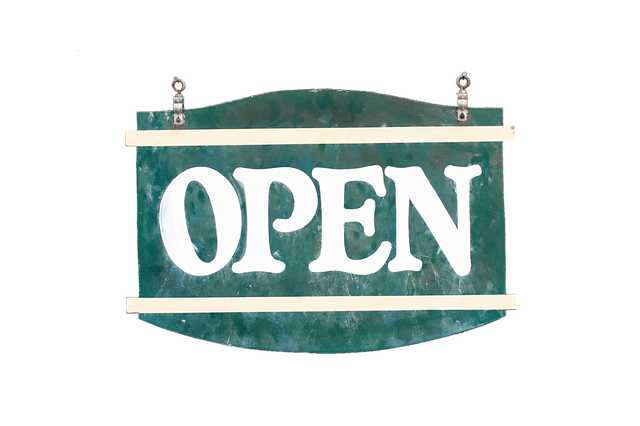Game development on Linux has thrived due to a vibrant and supportive open-source community that provides a wealth of tools like Lutris and Proton for enhancing game compatibility. The Linux platform's emphasis on transparency, customization, and community collaboration aligns with the values of developers who are drawn to its flexibility and innovative spirit. This has led to Linux becoming an increasingly attractive platform for both independent and seasoned game creators, offering a rich ecosystem that includes libraries such as SDL, GLFW, and Godot, and distribution platforms like itch.io. These tools facilitate easy sharing of games with a wide audience, fostering the growth of indie games and driving innovation through community feedback. Major engines like Unity and Unreal Engine have native Linux support, which streamlines development workflows and maximizes performance. The ecosystem is characterized by its agility and inclusivity, providing resources like GitHub for collaborative projects and version control with tools like Git. For new developers, there's a wealth of documentation and tutorials available for using Unity on Linux and leveraging the growing support for Unreal Engine in both development and runtime environments. The Linux Game Development Toolkit further supports game creation with essential libraries and middleware options. The community's commitment to innovation is evident through initiatives like Proton, which enable many Windows games to run smoothly on Linux. This dynamic space is a testament to the collective efforts of developers and the engaged gaming community, making game development with Linux a robust and forward-thinking endeavor.
Explore the dynamic landscape of game development where Linux takes center stage. This article offers a deep dive into the robust ecosystem that supports developers in creating immersive gaming experiences on Linux. From embracing open-source principles to navigating specialized game engines and tools, we’ll traverse the community’s collaborative support systems integral to thriving within the Linux gaming space. Join us as we uncover the essence of game development with Linux, a field that continues to grow and innovate.
- Embracing Open-Source: The Thriving Linux Game Development Ecosystem
- Navigating Game Engines and Tools for Linux-Based Projects
- Community Collaboration and Support: A Developer's Guide to the Linux Gaming Space
Embracing Open-Source: The Thriving Linux Game Development Ecosystem

Engaging in game development within the Linux ecosystem has seen significant growth, largely due to the robust and collaborative open-source community that supports it. This community not only contributes to a diverse array of tools and engines suitable for Linux game development but also fosters an environment where developers can share resources, collaborate on projects, and innovate without the constraints often associated with proprietary systems. Tools like Lutris and Proton have become pivotal in expanding the playability of games across various distributions, thereby enhancing the user experience and encouraging more users to adopt Linux for their gaming needs. The open-source nature of Linux, which encourages transparency and shared development, aligns perfectly with the ethos of game developers who value customization, flexibility, and community-driven progress. As a result, Linux has become an attractive platform for both indie and seasoned game developers looking to publish games that are not only playable on Linux but also often set new standards for open-source software within the gaming industry.
The thriving Linux game development ecosystem is characterized by its agility and inclusivity. Developers have access to a wealth of libraries and frameworks, such as SDL, GLFW, and Godot, which are tailored to support high-performance game development on Linux. The community’s commitment to open-source principles has led to the creation of platforms like itch.io, where developers can publish and distribute their games with ease. This democratization of distribution channels ensures that even small-scale projects have a fighting chance to reach an audience. Moreover, the active participation of gamers and enthusiasts within this ecosystem not only provides valuable feedback but also spurs further innovation and support for game development with Linux. The collaborative spirit of the open-source community continues to drive advancements in game development technologies on Linux, making it a vibrant and ever-evolving space for creators and players alike.
Navigating Game Engines and Tools for Linux-Based Projects

Game development within the Linux ecosystem has gained significant traction, thanks to a robust community of developers and users who actively contribute to various game engines and tools that are compatible with this operating system. Developers can leverage game engines like Unity and Unreal Engine, which offer native support for Linux, allowing for efficient workflows and performance optimization. The open-source nature of Linux facilitates transparency and collaboration, making it an ideal platform for developers who prioritize security and customization in their projects. Tools such as GitHub and source engines like Source Engine SDK are widely utilized within the Linux community, providing access to extensive resources and a wealth of community support. This environment fosters innovation and enables developers to create games that run seamlessly across different distributions, ensuring compatibility and stability.
For those embarking on game development with Linux, it’s crucial to familiarize themselves with the available engines and tools. Unity, for instance, has a large user base on Linux, offering comprehensive documentation and tutorials specifically tailored to this platform. Similarly, Unreal Engine’s support for Linux in both development and runtime environments has expanded its accessibility to a wider range of developers. The Linux Game Development Toolkit, which includes libraries like SDL2 and GLFW, and middleware such as Cinder, provides a solid foundation for graphics and input management. Additionally, the integration of version control systems like Git is essential for collaborative projects, ensuring that code changes are tracked and managed effectively. This ecosystem not only supports high-fidelity game creation but also nurtures the development of tools and libraries that enhance the capabilities of game developers on Linux.
Community Collaboration and Support: A Developer's Guide to the Linux Gaming Space

Engaging in game development within the Linux ecosystem offers a rich and collaborative environment for developers. The Linux gaming community is renowned for its strong support system, where users and developers alike contribute to each other’s success. This guide serves as an essential resource for navigating the Linux gaming space, highlighting the tools and practices that facilitate seamless game development on this platform. Open-source projects thrive here, with a plethora of libraries and engines optimized for Linux, such as Unigine, Unity, and Godot, which provide robust frameworks for building high-quality games.
Collaboration is key in the Linux gaming community; developers often find support in forums like those found on the Lounge or Stack Overflow, where issues are discussed, bugs reported, and solutions shared. Platforms like GitHub host collaborative projects, allowing for real-time contributions and updates to game development resources. Additionally, engagement with the Proton project by Valve, which enables Windows games to run on Linux, showcases the community’s commitment to expanding the library of available games and fostering interoperability. By leveraging these tools and actively participating in the community, developers can tap into a wealth of knowledge and experience that accelerates game development with Linux and enhances the gaming experience for users.
game development on Linux has garnered significant momentum, thanks in large part to a vibrant community of developers and users who continuously foster innovation and collaboration. This article has explored the multifaceted ecosystem that supports Linux game development, from embracing open-source initiatives to navigating the rich array of game engines and tools tailored for Linux. The collaborative spirit within this niche is unmatched, providing a robust support network that underscores the potential for groundbreaking gaming experiences on the platform. As the community grows and evolves, it’s clear that game development with Linux is not just viable but also a compelling choice for creators looking to push the boundaries of what’s possible in the gaming world.


























